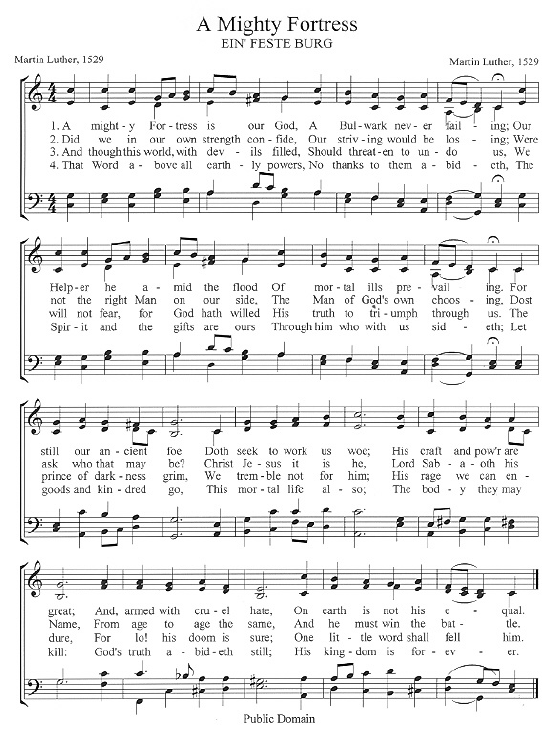“I like the hymns! I grew up with them! They are part of the heritage and the heritage of the Church—and they  alone should be sing in worship.”
alone should be sing in worship.”
“I like the choruses and the modern worship songs. We are called to sing to the Lord a ‘new song’—and these new songs with the modern sounds are what should be sung to reach this generation.”
Conversations like this abound in the American evangelical church over this issue. Writers have spilled much ink over this topic—usually under the umbrella of the topic of ‘worship wars.’ The hymns vs. choruses debate raged in the 1980’s and 1990’s—and seems to have died down a bit, thankfully. (When I brought up the topic of hymns and choruses, one man in our church confessed that he had no idea what I was talking about—he made no distinction! How happy I was!)
I grew up in the church heavily involved in traditional music ministry (choir, orchestra, piano/organ-backed congregational hymn singing, etc.). I even earned a bachelor’s and master’s degree in church music (B.S., Palm Beach Atlantic University; Master of Church Music, Southern Baptist Theological Seminary) and was a music minister for 10 years before God called me into the pastorate.
A joyful sound. Yes, I am starting with attitude. Musical skills are important (and I will address them soon), and doctrine is crucial, but if you want people to listen to what you sing, sing what you sing with joy! The axiom “they won’t care how much you know until they know how much you care” applies to this area as well. Do we care about what we sing—or do we act as if we could care less? Is it any wonder that the Psalms are filled with admonitions and encouragements to sing for joy (Psalm 95-100)?
… that’s doctrinally sound … Here we examine the actual content of a song. Is the song doctrinally sound and Scripturally bound? Sadly, fewer and fewer look at the words they are singing but simply to the singability and rhythm exclusively—and whether they can get them into an emotional ‘state’ worship. Paul instructed Titus to “teach what accords with sound doctrine” (Titus 2:1). One of the main functions of worship music is to teach about the glory of God and the gospel of our Lord Jesus. Having certain emotions is not the main desire, but truth should be the fuel to those emotions. The joy comes from knowing that what we are singing about (and, more importantly, Who we are singing about) is true!
… where skills abound … Skills? Am I saying that all worship leaders need to sing like Michael Buble? Play guitar like Christopher Parkening? Play drums like Buddy Rich? Piano like Horowitz? No, not at all. What I am saying is that the Psalmist implores those leading God’s people in worship to “Sing to him a new song; play skillfully on the strings, with loud shouts” (Psalm 33:3). When David was organizing the musicians for leading worship in the Temple, he gathered “all who were skillful” (1 Chronicles 25:7) in various instruments to lead. Granted, this is relative. Not everyone has equal skills, but everyone can offer the skills they have as an offering of praise to God.
… and praise resounds. What a witness it is to lead people to praise the living God who sent His Son for our justification! To think how Christ bore the wrath of God toward our sin upon His shoulders to satisfy as a propitiation so we would not have to face the penalty that was due us. What mercy and grace! To this, we offer that sacrifice of praise. We have come full circle.




















